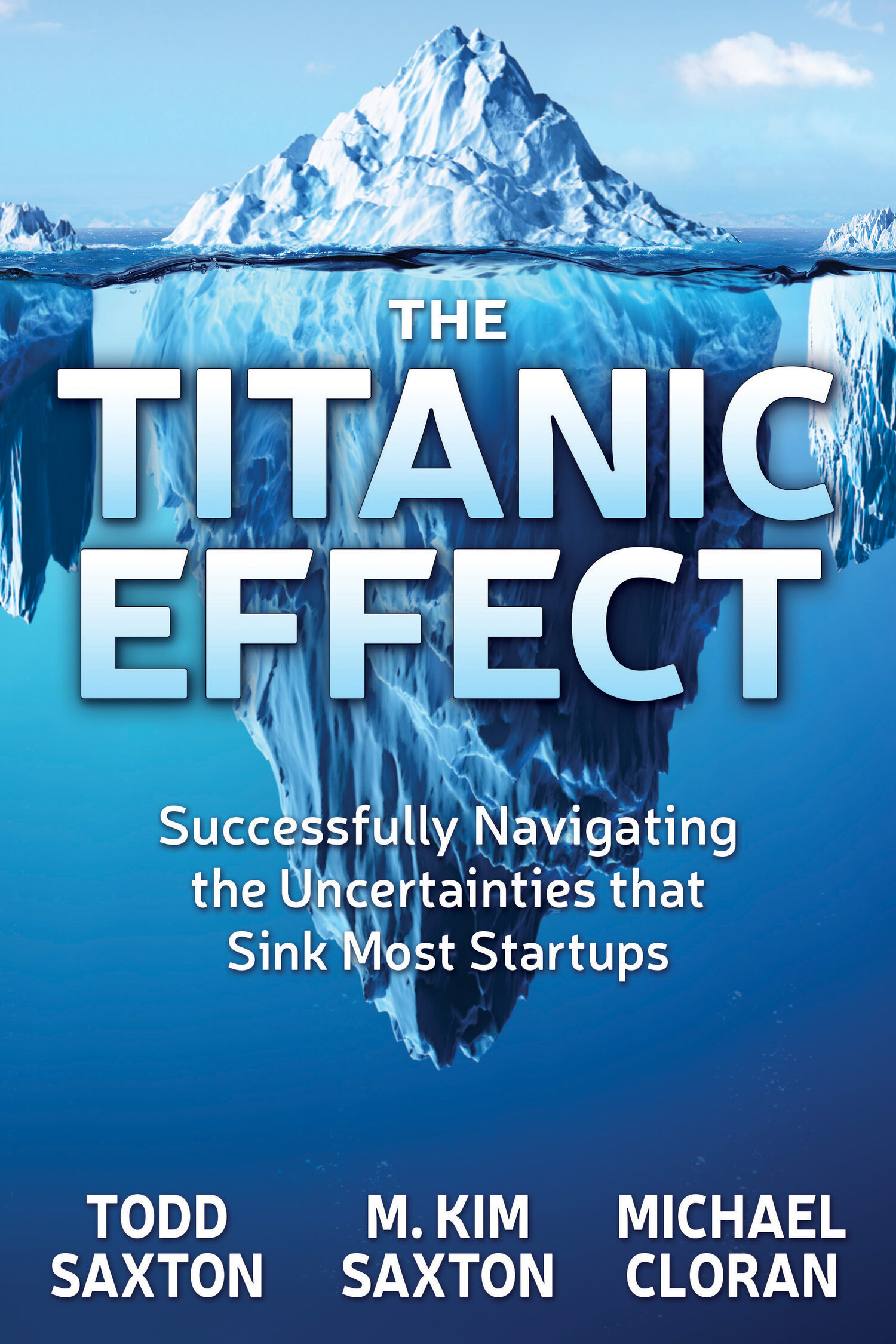We’ve shared the PEP model for founding teams before - Passion, Experience and Persistence. Since we’ve already covered the 2 Ps (click the words to read about them), we thought it was time to talk about Experience.
There is a myth in startups that startup founders are young people, fresh from education, and looking to disrupt the world. We see icons like Bill Gates, Mark Zuckerberg, and Steve Jobs and think, “You have to be young to start a company.” There are notable startup founders who are young. But the average age of all startup founders is 42 years. More importantly, the average age of the founders from the highest growth startups is 45 years. Even more interesting, middle-age founders have higher success rates when they start companies - the experience they bring to the startup makes a difference.
Icons from the Noun Project: Business by Eucalyp, Startup by Pavitra, and Industry by shashank singh
As we describe in The Titanic Effect, there is so much uncertainty in starting a company that experience can help in decision making. What do we really mean when we say experience? There are three types of experience that investors look for:
Business or Functional. Ultimately, startups are businesses that have their functional roots – product/technology, marketing, sales, finance, etc. Knowing how companies make money and what kinds of strategies work/don’t work is invaluable. Every startup learns the hard way. It’s just easier if you start with some learned knowledge in business fundamentals.
Startup. These are different from other types of businesses. It helps to have spent time in a startup to understand why it is different. The challenge of finding product/market fit is only understood once you’ve successfully done it. Many founders fail in their first startup. But they take the lessons learned and apply them to the next time. In case you are worried about failing, here are a few founders you might join:
Evan Williams, Twitter, failed with podcasting platform Odeo.
Sir James Dyson spent fifteen years and failed with over 5,000 prototypes before landing on his signature bagless vacuum cleaner.
Reid Hoffman, LinkedIn, failed with dating and networking platform SocialNet.
Kathryn Minshew, The Muse, lost almost everything with PYP Media due to founder and investor debt.
Milton Hershey (yes, the chocolate company) failed with three candy companies before succeeding.
Abraham Lincoln, President, failed at his grocery store.
Vera Wang, designer, “failed” to make the U.S. Olympic Skating Team.
Industry. The number one predictor of startup success is meeting an unmet market need. The best way to learn about the pain points in a market comes from having spent time in that industry. Not only will you understand customers’ needs better, but you also will have inherent knowledge about the competitors and the paths of success in that market.
So what if you don’t have one of these three types of experience? That’s okay. You don’t have to have all of the experience yourself. That’s the point of having a founding team. Look for others who can fill the experience gap you have. The diversity this approach brings will also benefit the startup.
Some people think they are too old to build a startup. Clearly, that is not the case. Assess where your experience is best suited. You can lend a hand to an existing startup. And if no one is solving the problem that’s important to you, then go ahead and create your own startup. Check out other lessons learned in The Titanic Effect and navigate onward.


